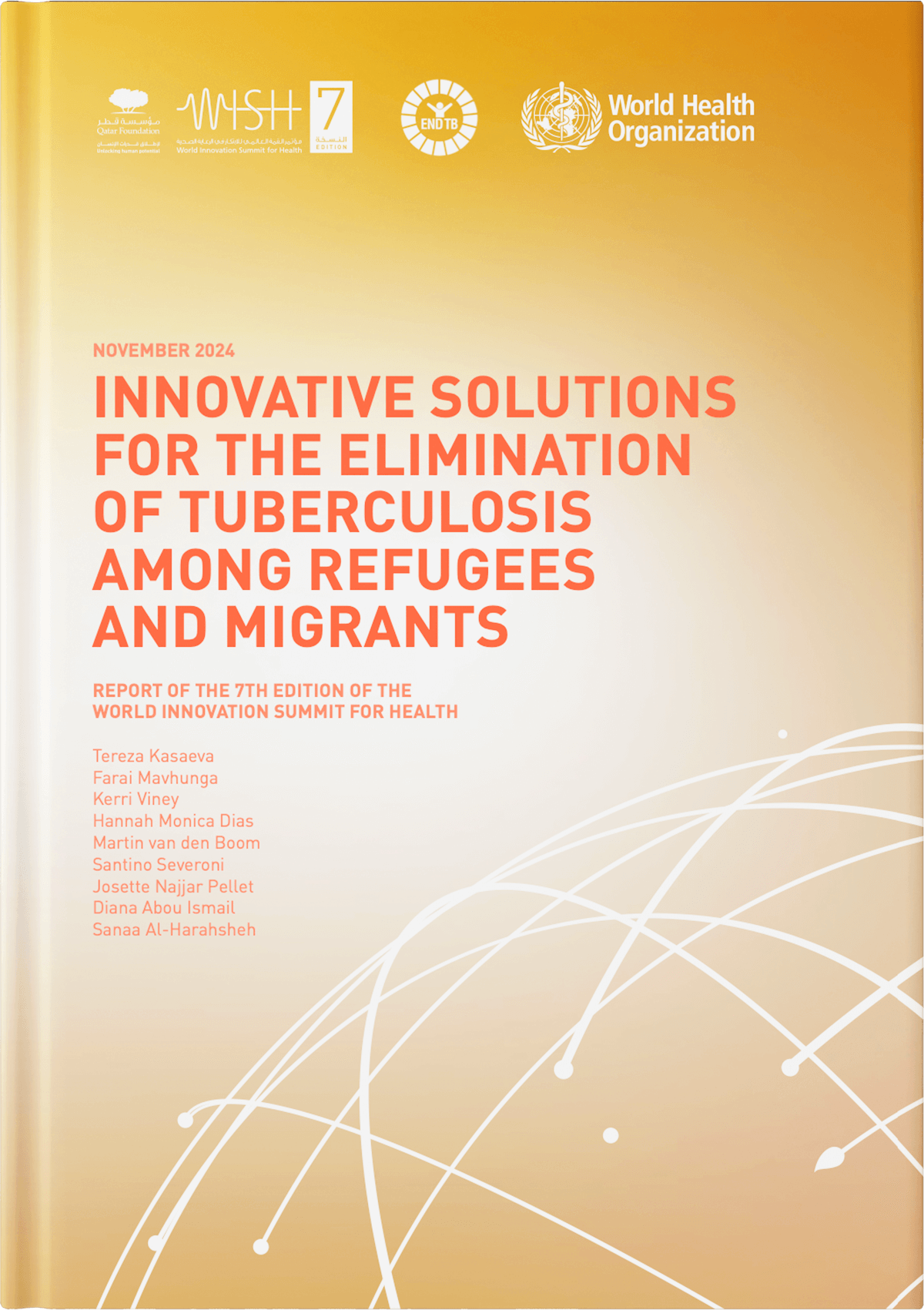Innovative Solutions for the Elimination of Tuberculosis Among Refugees and Migrants

Tuberculosis (TB) remains a significant global health challenge, particularly among refugees and migrants who face unique barriers to accessing healthcare. This report, prepared by the World Health Organization (WHO) in collaboration with the World Innovation Summit for Health (WISH) and Qatar Foundation, outlines innovative solutions and policy options to address TB in these at-risk populations. WHO’s End TB Strategy aims to end the global TB epidemic by 2030, aligning with the Sustainable Development Goals (SDGs). The political declaration from the 2023 United Nations (UN) high-level meeting on the fight against TB, WHO’s global action plan on promoting the health of refugees and migrants, and the Global compacts on Refugees, and for Safe, Orderly and Regular Migration, emphasize the need for comprehensive care, particularly for vulnerable groups such as refugees and migrants. However, these populations often face significant barriers, including poor living conditions, legal and policy restrictions, social and cultural barriers, and inadequate access to healthcare. These barriers contribute to delayed diagnosis, poor treatment outcomes, and increased transmission of TB. To address these challenges, this report proposes innovative solutions and policy options. It highlights the importance of high-level leadership and political support to ensure comprehensive, people-centered, and culturally sensitive TB services, including prevention, systematic screening, treatment and effective models of TB care. Adequate resources, both domestic and international, are needed to address the drivers of the TB epidemic, and for the provision of essential services. It is essential that we collaborate with civil society to develop and implement refugee- sensitive health policies that protect the rights of refugees and migrants and ensure equitable access to healthcare. Multisectoral engagement, fostering co-ordination between health and non-health sectors, and strengthening cross-border initiatives are also vital to ensure continuity of TB care for migrants and refugees. Other recommendations include improving surveillance and monitoring systems to record high-quality data on TB among at-risk populations, and conducting implementation research to identify and address barriers to TB care. This report includes case studies demonstrating examples of impactful actions in regions and countries such as Qatar, the Greater Mekong Subregion (GMS), the Middle East, Cox’s Bazar, the Amazonas, Eastern Africa and Poland. These case studies illustrate the effectiveness of innovative approaches and cross-sectoral collaboration in addressing TB among refugees and migrants. In conclusion, the report calls for urgent action and the roll-out of innovative solutions to eliminate TB among refugee and migrant populations.

Dr Tereza Kasaeva, MD, PhD is the Director of the World Health Organization’s (WHO) Global Tuberculosis Programme. Since 2018, she has been leading WHO’s work on setting norms, policies and standards on global TB prevention and care; technical support to countries, including through the three-level WHO TB technical expert network; monitoring the global TB epidemic; promoting TB research development & innovations, strengthening political and multisectoral engagement, accountability and advocacy to End TB. She works closely with numerous stakeholders including Member States, civil society, as well as national and international partners. Dr Kasaeva has more than 30 years of experience in public health and in leading innovative efforts for socially significant diseases, including TB, with over a decade with the Ministry of Health of the Russian Federation.